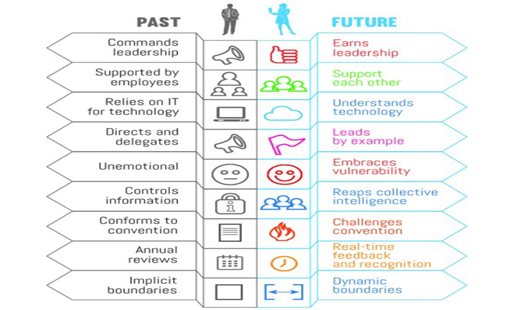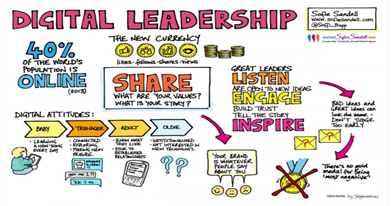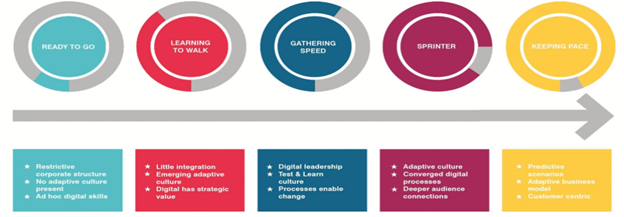In a society where the business environment is evolving faster coupled with technology forcing us to evolve continuously, our skills do not remain the same. Holding on to the idea that we can overcome these challenges without incorporating major changes in our lives is wrong because we can only evolve when we start adapting to the new context.
Leaders of today are facing challenges that their predecessors have not. The rise of the millennials, globalization, digitalization, the mix of generations, diversity, competition, and more are just a small part of the great global challenges. It has also changed the perception that people have about the concept of work, work-life and the overall work culture. Several freelances and open source talent, product, and idea marketplaces have quickly evolved over the past several years. Managing a global talent pool and constantly in flux depending on needs requires a new special ability.
Up until recently when we talk about a standard profile of the leader, the competencies that were appreciated at that time were vision, strategy, the ability to deliver results, the ability to coach and grow teams, the ability to be a good mentor, the ability to innovate, the ability to make long-term plans. In an era of the digital workforce, the culture of an enterprise must expand to include its digital workplace practices. When the need arose to grow globally and outsource business, working in multicultural environments and understanding cultural differences and adapting quickly, and thinking globally, have emerged as top issues for business leaders. Artificial intelligence brings new challenges to the world of leadership. If we look at what is happening today and the trends in leadership, what appears on the horizon is the need for leader who can think digitally. It is, in fact, a new profile of today’s leadership.

Image of evolution of the Leader via Jacob Morgan
About digital leadership
Digital transformation occurs at an unprecedented pace, creating a more connected world, and providing new opportunities for businesses to grow and create value. Leadership in the digital age obviously is different. We have different generations and different ways of working. Every leader must learn to think digitally. Digital thinking in terms of leaders is not just about making decisions about what applications to use or what technology to use. It means having a better understanding of the market, technological evolution, and the unexplored areas that you can explore to bring more value to customers using technology and constantly innovating.

Image of Digital leadership via sofiesandell.com
What are Digital Leadership Skills?
In today’s world, digital leadership is an obvious balancing act to drive success to the organization and the overall workforce. According to Deloitte, 42% of major companies now believe that it is increasingly important to develop leaders and that success in this digital age heavily depends on it.
Here are some of the most required skills of digital leadership:
Communication
To implement a strong communication network from the top to the business’s bottom, digital leaders must have a strategy in place and understand who they are addressing.
Vision
This is one of the traits that make digital leaders stand out from the rest. It’s easier to get your workforce on board with you with a strong and clear vision when they believe what you believe.
Strategy
Digital leaders need to have an evident vision for the future and a strategy that helps nurture a digital culture internally, ready to embrace changes.
Innovation
Digital leadership must be willing to try new technologies and be flexible and adaptable to create a digital workforce.
Adaptability
One of the main skills for a digital leader. When changes happen in an industry or business, it’s important that a digital leader can remain adaptable and ready to make decisions that will have minimal impact on the business.
Talent spotting
People are the essential resource, and digital leaders need to spot the areas within their business that need to be improved and where talent is potentially lacking.
Risk-taking
A crucial part of digital leadership.
”The biggest risk is not taking any risk. In a world that is changing really quickly, the only strategy that is guaranteed to fail is not taking risks.
Mark Zuckerberg, CEO of Facebook

In Conclusion
In the current business climate, digital leadership is a critical characteristic of our society, and companies must support their leaders and teams to deepen their knowledge base and acquire the essential skills to thrive in the Digital Age.
While technology is a fundamental tool, digital leaders must know that digital transformation is not about technology but about strategy, structure, culture, capabilities, and understanding the customer and organizational talent to create a competitive advantage.
Image of the most significant skills required by a digital leader via magzter.com
Main image via The European Files website










